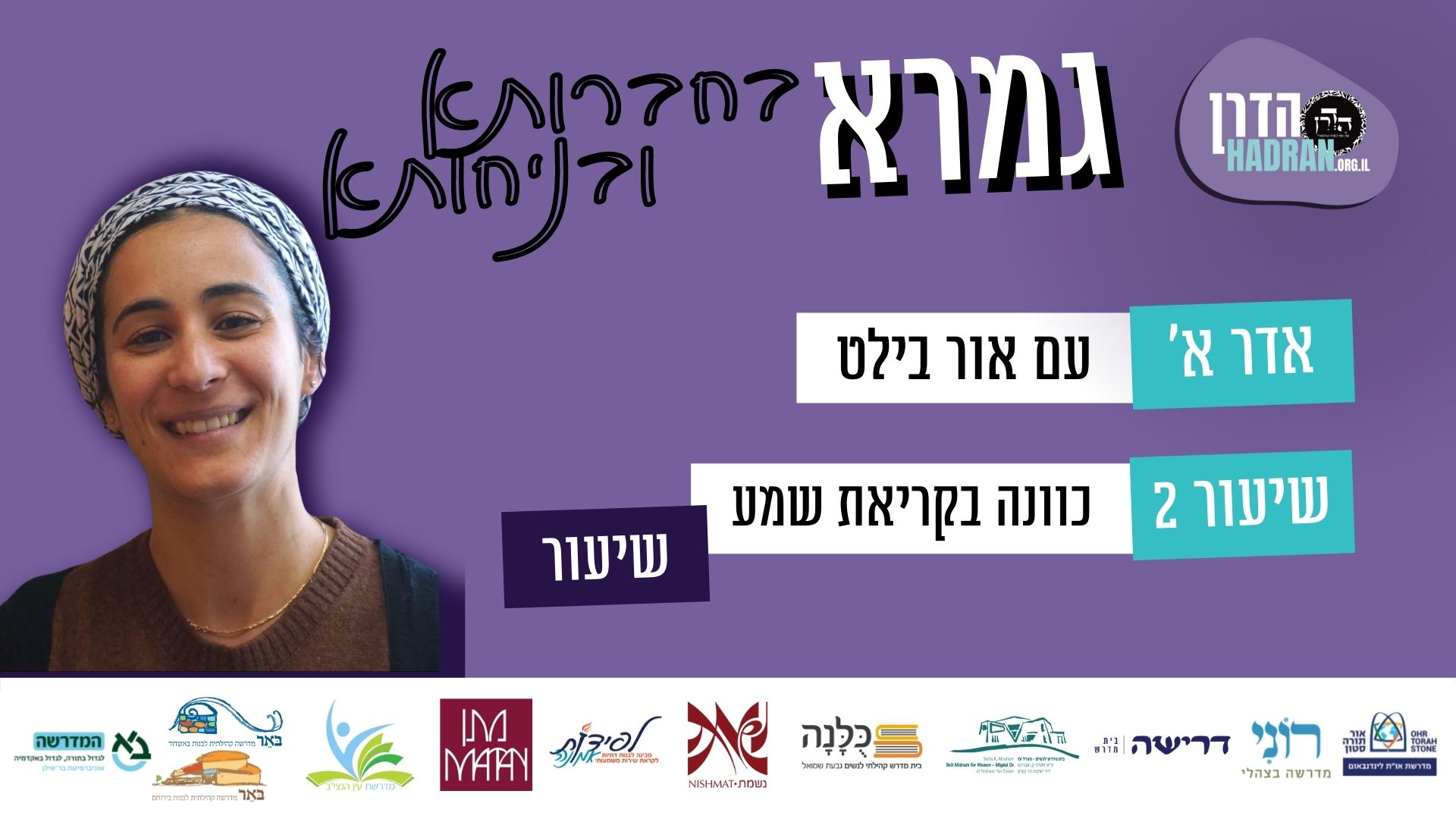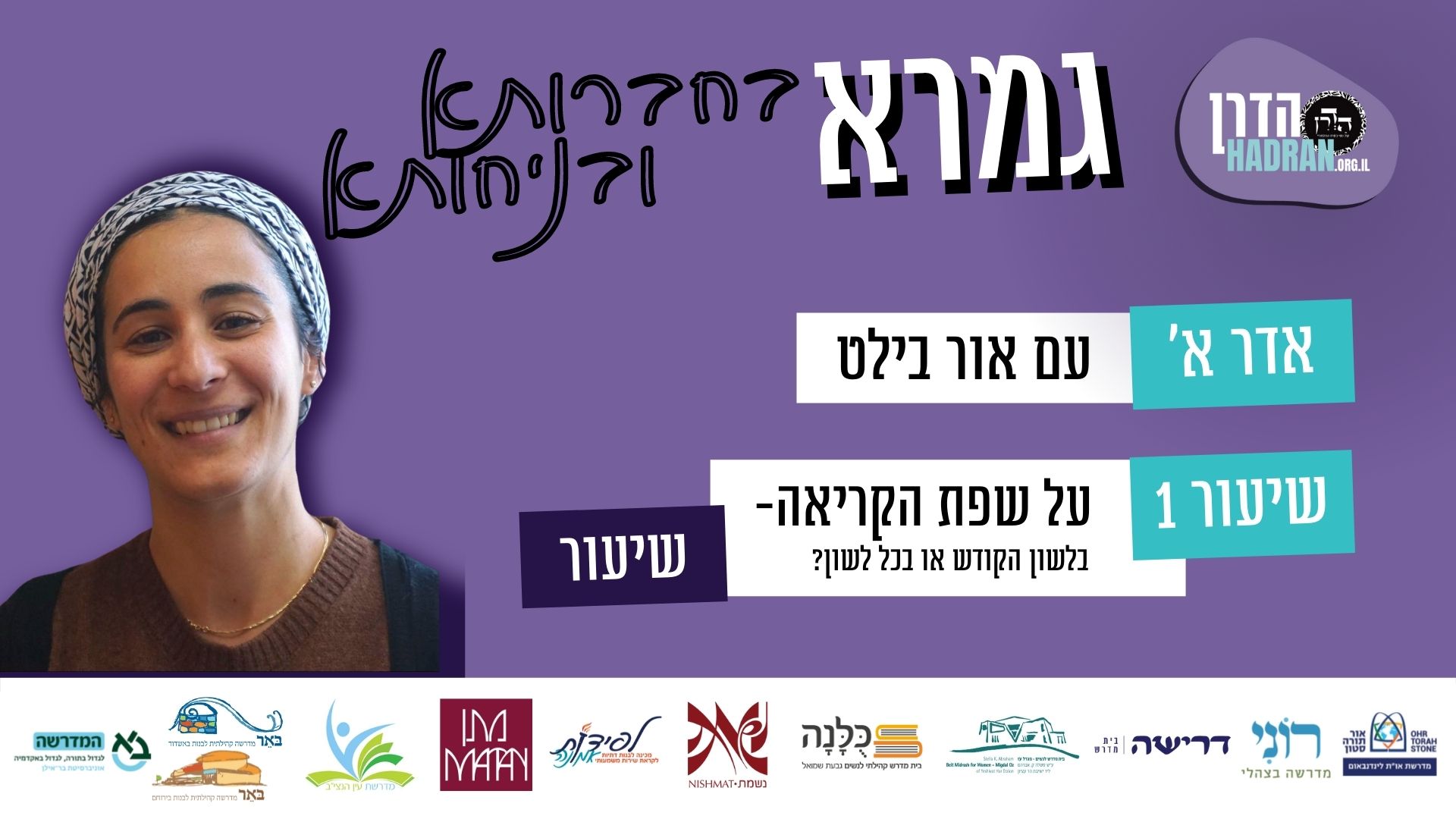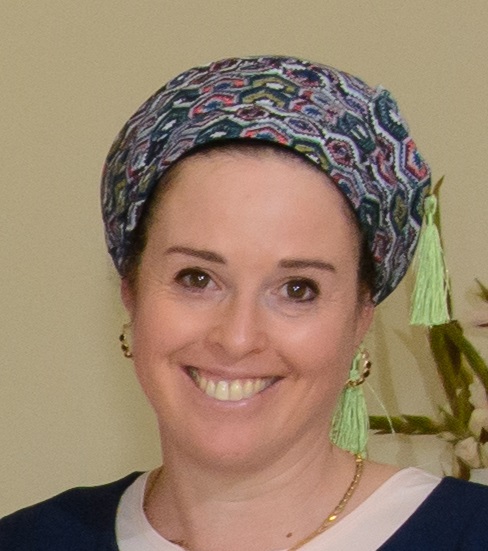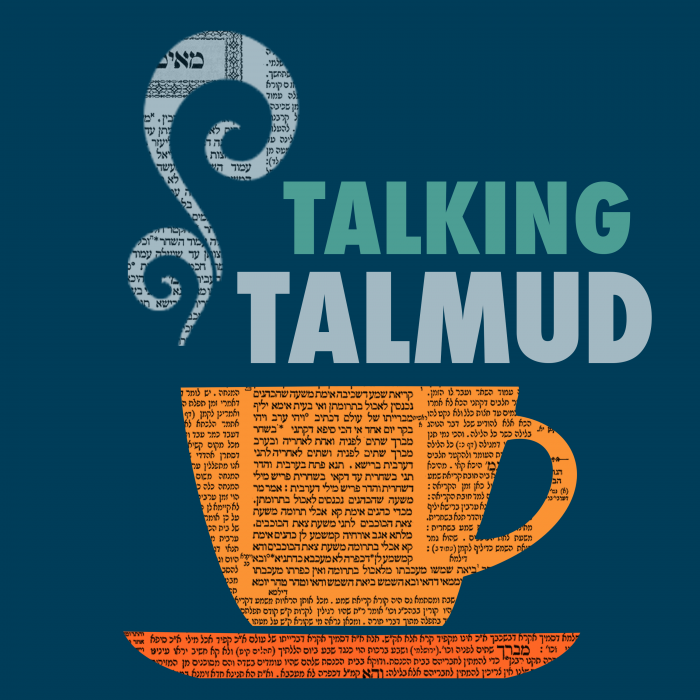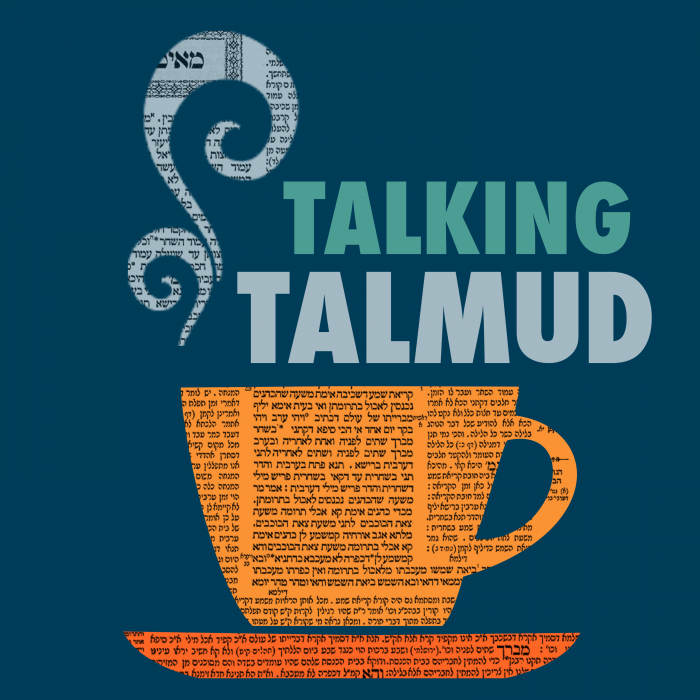מה מברכים על אורז ועל תבשיל עם אורז? מה מברכים על חציבא – תשביל עם קמח ודבש – האם זה תלוי כמה דבש יש בו? מה מברכים על פירורי לחם שנתבשלו? האם זה תלוי אם הפירורים הם בגודל של כזית או לא? השאלה נשאלת גם בקשר לגבי מאכלים אחרים שעשויים עם קמח אבל לא נחשבים כלחם. מה מברכים עליהם?
הלימוד החודש מוקדש לרפואת פיליס הכט, גיטל פעשא בת מאשה רחל על ידי חברותיה הרבות שאוהבות ומעריכות אותה.
רוצה להקדיש שיעור?

כלים
הלימוד החודש מוקדש לרפואת פיליס הכט, גיטל פעשא בת מאשה רחל על ידי חברותיה הרבות שאוהבות ומעריכות אותה.
כלים
העמקה
רוצה להבין מה באמת קורה מתחת לפני השטח של הסוגיה?
שיעורים, פודקאסטים והרחבות של מיטב המורות שלנו יפתחו לך עוד זוויות וכיווני חשיבה.
חדשה בלימוד הגמרא?
זה הדף הראשון שלך? איזו התרגשות עצומה! יש לנו בדיוק את התכנים והכלים שיעזרו לך לעשות את הצעדים הראשונים ללמידה בקצב וברמה שלך, כך תוכלי להרגיש בנוח גם בתוך הסוגיות המורכבות ומאתגרות.
פסיפס הלומדות שלנו
גלי את קהילת הלומדות שלנו, מגוון נשים, רקעים וסיפורים. כולן חלק מתנועה ומסע מרגש ועוצמתי.
ברכות לז
קָא מַשְׁמַע לַן — ״כֹּל שֶׁיֵּשׁ בּוֹ״. וְאִי אַשְׁמְעִינַן ״כֹּל שֶׁיֵּשׁ בּוֹ״ הָוֵה אָמֵינָא כֹּל שֶׁיֵּשׁ בּוֹ חֲמֵשֶׁת הַמִּינִים — אִין, אֲבָל אוֹרֶז וְדוֹחַן — לָא, מִשּׁוּם דְּעַל יְדֵי תַּעֲרוֹבֶת. אֲבָל אִיתֵיהּ בְּעֵינֵיהּ — נֵימָא אֲפִילּוּ אוֹרֶז וְדוֹחַן נָמֵי מְבָרְכִין עָלָיו ״בּוֹרֵא מִינֵי מְזוֹנוֹת״. קָא מַשְׁמַע לַן — כֹּל שֶׁהוּא מֵחֲמֵשֶׁת הַמִּינִים הוּא דִּמְבָרְכִין עָלָיו בּוֹרֵא מִינֵי מְזוֹנוֹת, לְאַפּוֹקֵי אוֹרֶז וְדוֹחַן, דַּאֲפִילּוּ אִיתֵיהּ בְּעֵינֵיהּ לָא מְבָרְכִינַן ״בּוֹרֵא מִינֵי מְזוֹנוֹת״.
Therefore, he teaches us: Anything that has of the five species of grain in it, even if it is in the context of a mixture with other ingredients. And had he taught us only: Anything that has of the five species of grain in it, I would have said that specifically over anything that has of the five species of grain in it, yes, one recites: Who creates the various kinds of nourishment, even if it is in the context of a mixture with other ingredients. However, over anything that has rice and millet in it, no, one does not recite: Who creates the various kinds of nourishment, because one is eating it in the context of a mixture. However, if the rice or millet is in its pure, unadulterated form, say that even over rice and millet one recites: Who creates the various kinds of nourishment, because they, too, are types of grain. Therefore, he teaches us specifically: Anything that is from the five species of grain, one recites over it: Who creates the various kinds of nourishment, to the exclusion of rice and millet, over which, even in its pure, unadulterated form, one does not recite: Who creates the various kinds of nourishment.
וְאוֹרֶז וְדוֹחַן לָא מְבָרְכִינַן ״בּוֹרֵא מִינֵי מְזוֹנוֹת״? וְהָתַנְיָא: הֵבִיאוּ לְפָנָיו פַּת אוֹרֶז וּפַת דּוֹחַן — מְבָרֵךְ עָלָיו תְּחִלָּה וָסוֹף כְּמַעֲשֵׂה קְדֵרָה. וְגַבֵּי מַעֲשֵׂה קְדֵרָה תַּנְיָא: בַּתְּחִלָּה מְבָרֵךְ עָלָיו ״בּוֹרֵא מִינֵי מְזוֹנוֹת״, וּלְבַסּוֹף מְבָרֵךְ עָלָיו בְּרָכָה אַחַת מֵעֵין שָׁלֹשׁ.
With regard to the previous conclusion, the Gemara asks: And over rice and millet we do not recite: Who creates the various kinds of nourishment? But wasn’t it taught in a baraita: If they brought before him rice bread or millet bread, he recites the blessing over it both before and after, as he would recite the blessing over a cooked dish containing dough from the five species of the grain. And with regard to a cooked dish, it was taught in a baraita: At the start, one recites: Who creates the various kinds of nourishment, and at the end, one recites one blessing abridged from the three blessings of Grace after Meals [al hamiḥya]. Apparently, one recites: Who creates the various kinds of nourishment, over rice and millet.
כְּמַעֲשֵׂה קְדֵרָה וְלָא כְּמַעֲשֵׂה קְדֵרָה: כְּמַעֲשֵׂה קְדֵרָה דִּמְבָרְכִין עָלָיו תְּחִלָּה וָסוֹף, וְלָא כְּמַעֲשֵׂה קְדֵרָה דְּאִילּוּ בְּמַעֲשֵׂה קְדֵרָה — בַּתְּחִלָּה ״בּוֹרֵא מִינֵי מְזוֹנוֹת״ וּלְבַסּוֹף בְּרָכָה מֵעֵין שָׁלֹשׁ, וְאִילּוּ הָכָא — בַּתְּחִלָּה מְבָרֵךְ עָלָיו ״שֶׁהַכֹּל נִהְיֶה בִּדְבָרוֹ״, וּלְבַסּוֹף ״בּוֹרֵא נְפָשׁוֹת רַבּוֹת וְחֶסְרוֹנָן עַל כָּל מַה שֶּׁבָּרָאתָ״.
The Gemara rejects this proof: Indeed, rice or millet is like a cooked dish, and is not like a cooked dish in every sense. The Gemara elaborates: It is considered like a cooked dish in that one recites a blessing over it both at the beginning and the end. And it is unlike a cooked dish in that over a cooked dish, at the start, one recites: Who creates the various kinds of nourishment, and at the end, one recites one blessing abridged from the three blessings of Grace after Meals; whereas here, over rice, at the start, one recites: By Whose word all things came to be, and at the end, one recites: Who creates the many forms of life and their needs for all that You have created.
וְאוֹרֶז לָאו מַעֲשֵׂה קְדֵרָה הוּא? וְהָתַנְיָא, אֵלּוּ הֵן מַעֲשֵׂה קְדֵרָה: חִילְקָא, טַרְגִּיס, סוֹלֶת, זָרִיז, וְעַרְסָן, וְאוֹרֶז.
The Gemara challenges: And rice is not a cooked dish? Wasn’t it taught in a baraita that these are cooked dishes: Wheat kernels split into two parts, wheat kernels crushed into three parts [teraggis], flour, wheat kernels crushed into four parts [zariz], wheat kernels crushed into five parts [arsan] and rice? Apparently, rice is considered a cooked dish like crushed wheat.
הָא מַנִּי — רַבִּי יוֹחָנָן בֶּן נוּרִי הִיא. דְּתַנְיָא: רַבִּי יוֹחָנָן בֶּן נוּרִי אוֹמֵר: אוֹרֶז מִין דָּגָן הוּא, וְחַיָּיבִין עַל חִמּוּצוֹ כָּרֵת, וְאָדָם יוֹצֵא בּוֹ יְדֵי חוֹבָתוֹ בַּפֶּסַח. אֲבָל רַבָּנַן לָא.
The Gemara responds: Whose opinion is reflected in this baraita? It is Rabbi Yoḥanan ben Nuri’s opinion, as it was taught in a baraita: Rabbi Yoḥanan ben Nuri says: Rice is a type of grain in every respect and, therefore, one is liable to death by karet if it leavens on Passover and he eats it intentionally. And a person who ate matza baked from rice flour fulfills his obligation on Passover; however, according to the Rabbis, no, rice is not in the category of a cooked dish.
וְרַבָּנַן לָא?! וְהָתַנְיָא: הַכּוֹסֵס אֶת הַחִטָּה מְבָרֵךְ עָלֶיהָ ״בּוֹרֵא פְּרִי הָאֲדָמָה״. טְחָנָהּ אֲפָאָהּ וּבִשְּׁלָהּ, בִּזְמַן שֶׁהַפְּרוּסוֹת קַיָּימוֹת — בַּתְּחִלָּה מְבָרֵךְ עָלֶיהָ ״הַמּוֹצִיא לֶחֶם מִן הָאָרֶץ״, וּלְבַסּוֹף מְבָרֵךְ עָלֶיהָ שָׁלֹשׁ בְּרָכוֹת. אִם אֵין הַפְּרוּסוֹת קַיָּימוֹת — בַּתְּחִלָּה מְבָרֵךְ עָלֶיהָ ״בּוֹרֵא מִינֵי מְזוֹנוֹת״, וּלְבַסּוֹף מְבָרֵךְ עָלֶיהָ בְּרָכָה אַחַת מֵעֵין שָׁלֹשׁ.
The Gemara challenges this: And the Rabbis hold that rice is not considered a cooked dish? Wasn’t it taught in a Tosefta: One who chews wheat recites: Who creates fruit of the ground. However, if he ground the wheat, baked it, and cooked the bread, there is a distinction between two situations: When the slices are intact and did not dissolve in the boiling process, at the start one recites: Who brings forth bread from the earth, and at the end one recites the three blessings of Grace after Meals, as he does after eating bread. When the slices dissolved in the course of the boiling process and are not intact, then at the start one recites: Who creates the various kinds of nourishment, and at the end one recites one blessing abridged from the three blessings of Grace after Meals.
הַכּוֹסֵס אֶת הָאוֹרֶז מְבָרֵךְ עָלָיו ״בּוֹרֵא פְּרִי הָאֲדָמָה״. טְחָנוֹ אֲפָאוֹ וּבִשְּׁלוֹ, אַף עַל פִּי שֶׁהַפְּרוּסוֹת קַיָּימוֹת, בַּתְּחִלָּה מְבָרֵךְ עָלָיו ״בּוֹרֵא מִינֵי מְזוֹנוֹת״, וּלְבַסּוֹף מְבָרֵךְ עָלָיו בְּרָכָה אַחַת מֵעֵין שָׁלֹשׁ.
One who chews rice recites: Who creates fruit of the ground. If one ground it, baked it, and then cooked it, even though the pieces are intact, at the start one recites: Who creates the various kinds of nourishment, and at the end one recites one blessing abridged from the three blessings of Grace after Meals.
מַנִּי, אִילֵּימָא רַבִּי יוֹחָנָן בֶּן נוּרִי הִיא דְּאָמַר אוֹרֶז מִין דָּגָן הוּא, ״הַמּוֹצִיא לֶחֶם מִן הָאָרֶץ״ וְשָׁלֹשׁ בְּרָכוֹת בָּעֵי בָּרוֹכֵי!
The Gemara discusses this Tosefta: Whose opinion is reflected in this Tosefta? If you say that it is the opinion of Rabbi Yoḥanan ben Nuri who said that rice is a type of grain, it should have said that one must recite: Who brings forth bread from the earth, beforehand and the three blessings of Grace after Meals thereafter, as he does after eating bread.
אֶלָּא לָאו, רַבָּנַן הִיא, וּתְיוּבְתָּא דְּרַב וּשְׁמוּאֵל!
Rather, isn’t it the opinion of the Rabbis, who hold that rice is not a type of grain, but nevertheless hold that over rice one recites: Who creates the various kinds of nourishment? If so, this is a conclusive refutation of the opinion of Rav and Shmuel.
תְּיוּבְתָּא.
The Gemara comments: Indeed, this is a conclusive refutation of their opinion.
אָמַר מָר: הַכּוֹסֵס אֶת הַחִטָּה מְבָרֵךְ עָלֶיהָ ״בּוֹרֵא פְּרִי הָאֲדָמָה״. וְהָתַנְיָא ״בּוֹרֵא מִינֵי זְרָעִים״! לָא קַשְׁיָא: הָא רַבִּי יְהוּדָה, וְהָא רַבָּנַן. דִּתְנַן: וְעַל יְרָקוֹת אוֹמֵר ״בּוֹרֵא פְּרִי הָאֲדָמָה״, רַבִּי יְהוּדָה אוֹמֵר: ״בּוֹרֵא מִינֵי דְשָׁאִים״.
Above, it was taught in the Tosefta that the Master said: One who chews wheat recites: Who creates fruit of the ground. The Gemara challenges: Wasn’t it taught in a baraita that one who chews wheat recites: Who creates various kinds of seeds? The Gemara resolves the problem: This is not difficult, as it is the subject of a tannaitic dispute. This opinion, that one must recite: Who creates various kinds of seeds, is the opinion of Rabbi Yehuda, and this opinion, that one must recite: Who creates fruit of the ground, is the opinion of the Rabbis. As we learned in our mishna: Over herbs and leafy vegetables one recites: Who creates fruit of the ground. Rabbi Yehuda says: Who creates various kinds of herbs. Rabbi Yehuda designates specific blessings for every type of plant, and he certainly distinguishes between vegetables in general and seeds.
אָמַר מָר, הַכּוֹסֵס אֶת הָאוֹרֶז מְבָרֵךְ עָלָיו ״בּוֹרֵא פְּרִי הָאֲדָמָה״. טְחָנוֹ אֲפָאוֹ וּבִשְּׁלוֹ, אַף עַל פִּי שֶׁהַפְּרוּסוֹת קַיָּימוֹת, בַּתְּחִלָּה מְבָרֵךְ עָלָיו ״בּוֹרֵא מִינֵי מְזוֹנוֹת״, וּלְבַסּוֹף בְּרָכָה אַחַת מֵעֵין שָׁלֹשׁ.
It was taught in the same Tosefta that the Master said: One who chews rice recites: Who creates fruit of the ground. If one ground it, baked it and then cooked it, even though the pieces are intact, at the start one recites: Who creates the various kinds of nourishment, and at the end one recites one blessing abridged from the three blessings of Grace after Meals.
וְהָתַנְיָא לְבַסּוֹף וְלָא כְלוּם! אָמַר רַב שֵׁשֶׁת: לָא קַשְׁיָא: הָא רַבָּן גַּמְלִיאֵל, וְהָא רַבָּנַן. דְּתַנְיָא, זֶה הַכְּלָל: כֹּל שֶׁהוּא מִשִּׁבְעַת הַמִּינִים, רַבָּן גַּמְלִיאֵל אוֹמֵר שָׁלֹשׁ בְּרָכוֹת, וַחֲכָמִים אוֹמְרִים בְּרָכָה אַחַת מֵעֵין שָׁלֹשׁ.
The Gemara raises the challenge: Wasn’t it taught in a baraita that in that case, at the end one need not recite any of the blessings recited over the fruits of Eretz Yisrael, but rather: Who creates the many forms of life. Rav Sheshet said: This is not difficult, as this is the subject of a tannaitic dispute. This, that one recites one blessing abridged from the three blessings of Grace after Meals, is the opinion of Rabban Gamliel. This, that one need only recite: Who creates the many forms of life, is the opinion of the Rabbis. As it was taught in a Tosefta that this is the principle: Anything that is from the seven species of grain and fruits for which Eretz Yisrael is praised, Rabban Gamliel says: Afterwards, one recites the three blessings of the Grace after Meals. And the Rabbis say: One blessing abridged from the three blessings of Grace after Meals is sufficient.
וּמַעֲשֶׂה בְּרַבָּן גַּמְלִיאֵל וְהַזְּקֵנִים שֶׁהָיוּ מְסוּבִּין בַּעֲלִיָּיה בִּירִיחוֹ, וְהֵבִיאוּ לִפְנֵיהֶם כּוֹתָבוֹת וְאָכְלוּ, וְנָתַן רַבָּן גַּמְלִיאֵל רְשׁוּת לְרַבִּי עֲקִיבָא לְבָרֵךְ. קָפַץ וּבֵרַךְ רַבִּי עֲקִיבָא בְּרָכָה אַחַת מֵעֵין שָׁלֹשׁ. אֲמַר לֵיהּ רַבָּן גַּמְלִיאֵל: עֲקִיבָא, עַד מָתַי אַתָּה מַכְנִיס רֹאשְׁךָ בֵּין הַמַּחֲלוֹקֶת! אָמַר לוֹ: רַבֵּינוּ, אַף עַל פִּי שֶׁאַתָּה אוֹמֵר כֵּן וַחֲבֵרֶיךָ אוֹמְרִים כֵּן, לִמַּדְתָּנוּ רַבֵּינוּ יָחִיד וְרַבִּים הֲלָכָה כָּרַבִּים.
The Gemara relates: And there was an incident involving Rabban Gamliel and the Sages who were sitting in an upper floor in Jericho and they brought dates before them and they ate. And afterwards, Rabban Gamliel gave Rabbi Akiva permission to recite the blessing. Rabbi Akiva hurried and recited one blessing abridged from the three blessings of Grace after Meals. Rabban Gamliel said: Akiva, until when will you continue to stick your head into the dispute among the Sages with regard to what you did? Rabbi Akiva said to him: Our teacher, even though you say this while your colleagues disagree and say that, you taught us, our teacher, the general principle that guides resolution of halakhic disputes: In a dispute between an individual and the many, the halakha is in accordance with the opinion of the many. Although you are the Nasi, it is appropriate to act in accordance with the opinion of the many.
רַבִּי יְהוּדָה אוֹמֵר מִשְּׁמוֹ: כֹּל שֶׁהוּא מִשִּׁבְעַת הַמִּינִים
The Gemara records a variation on the dispute between Rabban Gamliel and the Rabbis: Rabbi Yehuda says in his name, the name of Rabbi Akiva. With regard to anything that is from the seven species
וְלֹא מִין דָּגָן הוּא, אוֹ מִין דָּגָן וְלֹא עֲשָׂאוֹ פַּת — רַבָּן גַּמְלִיאֵל אוֹמֵר שָׁלֹשׁ בְּרָכוֹת, וַחֲכָמִים אוֹמְרִים בְּרָכָה אַחַת. כֹּל שֶׁאֵינוֹ לֹא מִשִּׁבְעַת הַמִּינִין וְלֹא מִין דָּגָן, כְּגוֹן פַּת אוֹרֶז וְדוֹחַן — רַבָּן גַּמְלִיאֵל אוֹמֵר בְּרָכָה אַחַת מֵעֵין שָׁלֹשׁ, וַחֲכָמִים אוֹמְרִים וְלֹא כְלוּם.
and is not a species of grain, but one of the fruits, or which is a species of grain and has not been made into bread, there is a dispute. Rabban Gamliel says that one recites the three blessings of the Grace after Meals and the Rabbis say that one recites a single blessing. And over anything that is neither one of the seven species nor a species of grain, such as rice bread or millet bread, Rabban Gamliel says that after eating, one recites one blessing abridged from the three blessings of Grace after Meals, and the Rabbis say that one need not recite any blessing, i.e., Grace after Meals or one blessing abridged from three, but instead he recites: Who creates the many forms of life. If so, the Tosefta, which says that after rice one recites one blessing abridged from three, is in accordance with Rabbi Yehuda’s version of Rabban Gamliel’s opinion.
בְּמַאי אוֹקִימְתָּא — כְּרַבָּן גַּמְלִיאֵל? אֵימָא סֵיפָא דְּרֵישָׁא, אִם אֵין הַפְּרוּסוֹת קַיָּימוֹת — בַּתְּחִלָּה מְבָרֵךְ עָלֶיהָ ״בּוֹרֵא מִינֵי מְזוֹנוֹת״, וּלְבַסּוֹף מְבָרֵךְ עָלֶיהָ בְּרָכָה אַחַת מֵעֵין שָׁלֹשׁ. מַנִּי: אִי רַבָּן גַּמְלִיאֵל, הַשְׁתָּא אַכּוֹתָבוֹת וְאַדַּיְיסָא אָמַר רַבָּן גַּמְלִיאֵל שָׁלֹשׁ בְּרָכוֹת, אִם אֵין הַפְּרוּסוֹת קַיָּימוֹת מִיבַּעְיָא?!
The Gemara challenges: How did you establish the Tosefta? In accordance with the opinion of Rabban Gamliel. Say the latter clause of the first section of this Tosefta, which states that even over wheat bread, when the slices are not intact, then at the start one recites: Who creates the various kinds of nourishment, and at the end one recites one blessing abridged from the three blessings of Grace after Meals. Whose opinion is reflected in that section of the Tosefta? If it is the opinion of Rabban Gamliel, now if over dates and pounded wheat, Rabban Gamliel said that one recites the three blessings of Grace after Meals, in a case where the slices of bread are not intact, is it necessary to say that one recites Grace after Meals?
אֶלָּא פְּשִׁיטָא רַבָּנַן. אִי הָכִי קַשְׁיָא דְּרַבָּנַן אַדְּרַבָּנַן! אֶלָּא לְעוֹלָם רַבָּנַן, וּתְנִי גַּבֵּי אוֹרֶז: ״וּלְבַסּוֹף אֵינוֹ מְבָרֵךְ עָלָיו וְלֹא כְּלוּם״.
Rather, it is clear that the Tosefta is in accordance with the opinion of the Rabbis. If so, there is a contradiction between one opinion of the Rabbis and a second opinion of the Rabbis. The Gemara resolves the contradiction: Rather, actually, the Tosefta is in accordance with the opinion of the Rabbis and emend the text and teach with regard to rice: At the end, one does not recite any blessing, consistent with their opinion in the baraita.
אָמַר רָבָא: הַאי רִיהֲטָא דְּחַקְלָאֵי דְּמַפְּשִׁי בֵּיהּ קִמְחָא, מְבָרֵךְ ״בּוֹרֵא מִינֵי מְזוֹנוֹת״. מַאי טַעְמָא? — דִּסְמִידָא עִיקָּר. דְּמָחוֹזָא, דְּלָא מַפְּשִׁי בֵּיהּ קִמְחָא, מְבָרֵךְ עָלָיו ״שֶׁהַכֹּל נִהְיָה בִּדְבָרוֹ״. מַאי טַעְמָא? — דּוּבְשָׁא עִיקָּר. וַהֲדַר אָמַר רָבָא: אִידֵּי וְאִידֵּי, ״בּוֹרֵא מִינֵי מְזוֹנוֹת״. דְּרַב וּשְׁמוּאֵל דְּאָמְרִי תַּרְוַיְיהוּ: כֹּל שֶׁיֵּשׁ בּוֹ מֵחֲמֵשֶׁת הַמִּינִים מְבָרְכִין עָלָיו ״בּוֹרֵא מִינֵי מְזוֹנוֹת״.
With regard to the blessings recited over various types of porridge, Rava said: Over the farmer’s mixture of flour and honey to which they add extra flour, one recites: Who creates the various kinds of nourishment. What is the reason? Because the flour is the primary ingredient in the mixture. Over this same dish, however, when it is prepared in the manner that it is prepared in Meḥoza where they do not add extra flour, one recites: By Whose word all things came to be. What is the reason? Because in that dish, the honey is the primary ingredient. And Rava reconsidered and said: Over both this, the mixture of the farmers, and that, the mixture of Meḥoza, one recites: Who creates the various kinds of nourishment. As Rav and Shmuel both said: Anything that is from the five species of grain, one recites over it: Who creates the various kinds of nourishment.
אָמַר רַב יוֹסֵף: הַאי חֲבִיצָא דְּאִית בֵּיהּ פֵּרוּרִין כְּזַיִת — בַּתְּחִלָּה מְבָרֵךְ עָלָיו ״הַמּוֹצִיא לֶחֶם מִן הָאָרֶץ״, וּלְבַסּוֹף מְבָרֵךְ עָלָיו שָׁלֹשׁ בְּרָכוֹת. דְּלֵית בֵּיהּ פֵּרוּרִין כְּזַיִת — בַּתְּחִלָּה מְבָרֵךְ עָלָיו ״בּוֹרֵא מִינֵי מְזוֹנוֹת״, וּלְבַסּוֹף בְּרָכָה אַחַת מֵעֵין שָׁלֹשׁ.
Rav Yosef said: Over this cooked dish, which contains pieces of bread that are the size of an olive-bulk, at the start one recites: Who brings forth bread from the earth, and afterward one recites the three blessings of Grace after Meals as he would over bread. Over that same cooked dish, which does not contain pieces of bread that are the size of an olive-bulk, at the start one recites: Who creates the various kinds of nourishment, and at the end one recites one blessing abridged from the three blessings of Grace after Meals, as he would over a cooked dish.
אָמַר רַב יוֹסֵף: מְנָא אָמֵינָא לַהּ — דְּתַנְיָא: הָיָה עוֹמֵד וּמַקְרִיב מְנָחוֹת בִּירוּשָׁלַיִם — אוֹמֵר: ״בָּרוּךְ שֶׁהֶחֱיָינוּ וְקִיַּמְנוּ וְהִגִּיעָנוּ לַזְּמַן הַזֶּה״. נְטָלָן לְאׇכְלָן — מְבָרֵךְ ״הַמּוֹצִיא לֶחֶם מִן הָאָרֶץ״. וְתָנֵי עֲלַהּ: וְכוּלָּן, פּוֹתְתָן כְּזַיִת.
And Rav Yosef said: From where do I say this halakha? As it was taught in a baraita: The first time the priest would stand and offer meal-offerings in Jerusalem, he would recite: Who has given us life, sustained us, and brought us to this time, as it is the first time that he fulfilled the mitzva of offering that sacrifice (Rashi). When he would take the meal-offerings in order to eat them, he would recite: Who brings forth bread from the earth. And it was taught on the topic of meal-offerings: And all of the meal-offerings, he crumbles them into pieces, approximately the size of an olive-bulk. This proves that over bread crumbs the size of an olive-bulk, one recites: Who brings forth bread from the earth.
אָמַר לֵיהּ אַבָּיֵי: אֶלָּא מֵעַתָּה, לְתַנָּא דְּבֵי רַבִּי יִשְׁמָעֵאל דְּאָמַר פּוֹרְכָן עַד שֶׁמַּחְזִירָן לְסׇלְתָּן, הָכִי נָמֵי דְּלָא בָּעֵי בָּרוֹכֵי ״הַמּוֹצִיא לֶחֶם מִן הָאָרֶץ״?! וְכִי תֵּימָא הָכִי נָמֵי, וְהָתַנְיָא: לָקַט מִכּוּלָּן כְּזַיִת וַאֲכָלָן, אִם חָמֵץ הוּא — עָנוּשׁ כָּרֵת, וְאִם מַצָּה הוּא — אָדָם יוֹצֵא בּוֹ יְדֵי חוֹבָתוֹ בַּפֶּסַח.
Abaye said to Rav Yosef: But if what you say is so, then now, according to the tanna of the school of Rabbi Yishmael who said with regard to meal-offerings: He crushes them until he restores them to the form that they were when they were flour, would you say that so too, in that case, he need not recite: Who brings forth bread from the earth? And if you say that that is so, that one does not recite: Who brings forth bread from the earth, over these meal-offerings, wasn’t it taught in a baraita: One who gathered an olive-bulk sized portion from all of the crumbs of the meal-offerings and ate them, if it was an offering of leavened bread like that of a thanks-offering, if he ate them on Passover he is punishable by karet. If it was an offering of unleavened bread, one fulfills his obligation to eat matza on Passover. This illustrates that bread crumbs, regardless of their size, are always considered bread.
הָכָא בְּמַאי עָסְקִינַן — בְּשֶׁעֵרְסָן. אִי הָכִי אֵימָא סֵיפָא, וְהוּא שֶׁאֲכָלָן בִּכְדֵי אֲכִילַת פְּרָס — וְאִי בְּשֶׁעֵרְסָן, הַאי ״שֶׁאֲכָלָן״, ״שֶׁאֲכָלוֹ״ מִיבְּעֵי לֵיהּ?
Rav Yosef answered that this is not the case, and one does not recite a blessing over bread crumbs as he would over actual bread. Rather, with what are we dealing here? With a case where one mixed the bread crumbs with water and compacted them into a single mass. The Gemara challenges this: If so, say the latter clause, in which we learn that this case of one who eats the crumbs speaks specifically about when he ate them, all of the crumbs that constitute the size of an olive-bulk in the time it takes to eat a half-loaf of bread. And if it is referring to a case where one compacted them into a single mass, that expression: When he ate them, is inappropriate. When he ate it, is what it needed to say, as it is a single loaf.
אֶלָּא הָכָא בְּמַאי עָסְקִינַן — בְּבָא מִלֶּחֶם גָּדוֹל.
Rather, it can be explained in another way: With what are we dealing here? With a case where each of the crumbs came from a large loaf of bread over which one is obligated to recite: Who brings forth bread from the earth. Over crumbs that were never part of a loaf of bread large enough to require this blessing, however, one need only recite: Who brings forth bread from the earth, if they are at least the size of an olive-bulk.
מַאי הָוֵה עֲלַהּ? אָמַר רַב שֵׁשֶׁת: הַאי חֲבִיצָא, אַף עַל גַּב דְּלֵית בֵּיהּ פֵּרוּרִין כְּזַיִת — מְבָרֵךְ עָלָיו ״הַמּוֹצִיא לֶחֶם מִן הָאָרֶץ״. אָמַר רָבָא: וְהוּא דְּאִיכָּא עֲלֵיהּ תּוֹרִיתָא דְנַהְמָא.
Since all of the proofs for and against this opinion were rejected, the Gemara asks: What conclusion was reached about this halakha? Rav Sheshet said: Over this cooked dish, which contains bread crumbs, even though it does not contain crumbs the size of an olive-bulk, one recites: Who brings forth bread from the earth. Rava said: This is specifically in a case where the crumbs still have the appearance of bread and did not dissolve completely.
טְרוֹקְנִין, חַיָּיבִין בַּחַלָּה. וְכִי אֲתָא רָבִין אָמַר רַבִּי יוֹחָנָן: טְרוֹקְנִין פְּטוּרִין מִן הַחַלָּה. מַאי טְרוֹקְנִין? אָמַר אַבָּיֵי: כּוּבָּא דְאַרְעָא.
Another issue concerned terokanin, with regard to which it was said that they are obligated in the mitzva to separate ḥalla, meaning that terokanin have the halakhic status of bread. And, when Ravin came from Eretz Yisrael to Babylonia, he said that Rabbi Yoḥanan said: Terokanin are exempt from the mitzva to separate ḥalla. The Gemara asks: What are terokanin? Abaye said: Terokanin are made of a watery mixture of flour and water roasted in a cavity in a stove in the ground and is not actually bread.
וְאָמַר אַבָּיֵי: טְרִיתָא פְּטוּרָה מִן הַחַלָּה. מַאי טְרִיתָא? אִיכָּא דְּאָמְרִי גְּבִיל מְרַתַּח, וְאִיכָּא דְּאָמְרִי נַהֲמָא דְהִנְדְּקָא, וְאִיכָּא דְּאָמְרִי לֶחֶם הֶעָשׂוּי לְכוּתָּח.
And Abaye said: Terita is exempt from the mitzva to separate ḥalla. The Gemara asks: What is terita? There are several opinions: Some say, it is flour and water kneaded that is poured onto a boiling hot stove. And some say, it is bread from India, made from dough wrapped around a skewer and covered with oil or eggs before baking. And some say, it is bread made for kutaḥ, bread baked in an unusual manner so that it would become extremely leavened and could be used as an ingredient in the Babylonian spice, kutaḥ.
תָּנֵי רַבִּי חִיָּיא: לֶחֶם הֶעָשׂוּי לְכוּתָּח פָּטוּר מִן הַחַלָּה. וְהָא תַּנְיָא חַיָּיב בַּחַלָּה! הָתָם כִּדְקָתָנֵי טַעְמָא — רַבִּי יְהוּדָה אוֹמֵר: מַעֲשֶׂיהָ מוֹכִיחִין עָלֶיהָ. עֲשָׂאָן
And similarly, Rabbi Ḥiyya taught: Bread made for kutaḥ; one is exempt from the mitzva to separate ḥalla. The Gemara asks: Wasn’t it taught in a baraita that one is obligated in the mitzva to separate ḥalla from bread made for kutaḥ? The Gemara answers: There, as the reason was taught that Rabbi Yehuda says: There is a distinction between different types of bread made for kutaḥ, as the actions taken in its preparation prove the purpose for which it was made. If he made them

